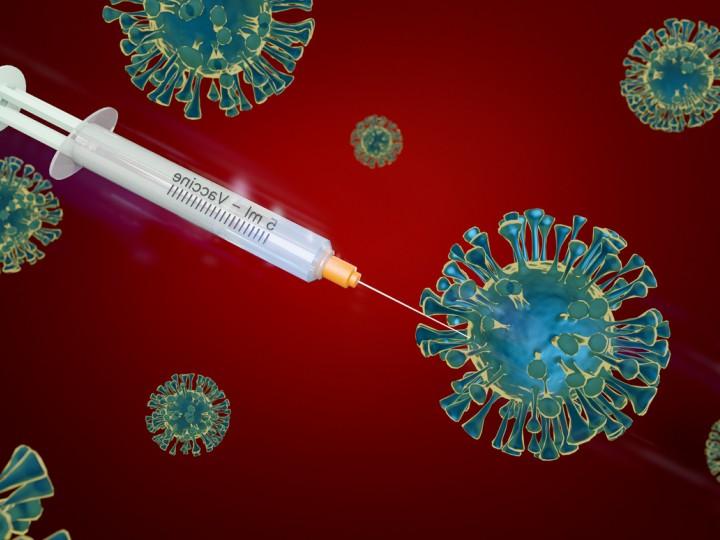
Biotechnology Degree Overview
Ever wondered how scientific discoveries turn into real-world medicines and treatments? That's the power of biotechnology! This field combines biology with the engineering of living cells to create value-added products, such as medicines, vaccines, and gene therapy. The process of manufacturing these value-added products is called Biotechnology. The program equips students with the knowledge and hands-on skills in biomanufacturing's scientific, regulatory and practical facets.
The Master of Biotechnology at ACPHS is offered by the Department of Life Sciences and Pharmaceutical Sciences in collaboration with CBET (Stack Family Center for Biopharmaceutical Education and Training). The program offers two tracks: a full-time track for full-time students and a part-time track for working professionals. In addition, the flexibility of the program enables you to pursue dual degree programs (e.g., Doctor of Pharmacy).
The program is a one-year accelerated program with over 150+ hours of hands-on laboratory learning and courses that lay the foundations for understanding the science and regulatory landscape of the biotech industry. The program culminates with a biopharmaceutical project (research-focused, review paper and industrial-experience track) allowing a customizable personalized education experience.
Scholarships are available for qualified students who submit complete applications by the deadlines. There are two scholarships, Richard E. Sobiski ’65 Masters in Biomanufacturing and Bioprocessing Fund and the Borisenok Family Foundation Biomanufacturing Scholar to help support advancement in the biopharmaceutical sciences.
The Master of Biotechnology at ACPHS is offered by the Department of Life Sciences and Pharmaceutical Sciences in collaboration with CBET (Stack Family Center for Biopharmaceutical Education and Training). The program offers two tracks: a full-time track for full-time students and a part-time track for working professionals. In addition, the flexibility of the program enables you to pursue dual degree programs (e.g., Doctor of Pharmacy).
The program is a one-year accelerated program with over 150+ hours of hands-on laboratory learning and courses that lay the foundations for understanding the science and regulatory landscape of the biotech industry. The program culminates with a biopharmaceutical project (research-focused, review paper and industrial-experience track) allowing a customizable personalized education experience.
Scholarships are available for qualified students who submit complete applications by the deadlines. There are two scholarships, Richard E. Sobiski ’65 Masters in Biomanufacturing and Bioprocessing Fund and the Borisenok Family Foundation Biomanufacturing Scholar to help support advancement in the biopharmaceutical sciences.

Biotechnology is Designed to Lay the Foundation for Careers in the Biotech Industry
Biomanufacturing is the science and technology of using (engineered) living cells to create valuable products like medicine, biofuels, and sustainable materials. Medicines made using cells are also known as biologics and include, vaccines, antibodies, enzymes, and cell and gene therapies.
The biotechnology program is designed to lay the foundation for careers in the biotech industry. The program emphasizes understanding cell and molecular biology, how medicines are discovered, (bio)manufactured, and regulated and has 150+ hours of hands-on training on laboratory techniques that match industry standards equipment and techniques.
The biotechnology program at ACPHS is an excellent fit for early and mid-career professionals who want to enter the biotech sector and (bio)pharmaceutical industry. If you’re already a professional working in biopharma, this program is a great way to sharpen your skills and prepare for leadership roles in a continually evolving industry.
The biotechnology program is designed to lay the foundation for careers in the biotech industry. The program emphasizes understanding cell and molecular biology, how medicines are discovered, (bio)manufactured, and regulated and has 150+ hours of hands-on training on laboratory techniques that match industry standards equipment and techniques.
The biotechnology program at ACPHS is an excellent fit for early and mid-career professionals who want to enter the biotech sector and (bio)pharmaceutical industry. If you’re already a professional working in biopharma, this program is a great way to sharpen your skills and prepare for leadership roles in a continually evolving industry.

Hands-On Learning in the Biotechnology Master's Program
The Biotechnology program culminates with Biopharmaceutical capstone projects, offering students the opportunity to apply their classroom and laboratory learning to real-world practice. There are three options for biopharmaceutical capstones. The program culminates with a biopharmaceutical project (research-focused, review paper and industrial-experience track) allowing a customizable personalized education experience.
Biopharmaceutical Capstones

Careers in Biotechnology
Our graduates are prepared to take on a variety of positions in the biopharmaceutical industry, including cell-line development, process development, regulatory compliance, quality assurance/quality control, manufacturing and business development. Leading biopharmaceutical sciences companies who hire our graduates include:
Amgen, AstraZeneca, Bristol-Myers Squibb, Curia Global, Eli Lilly, GlaxoSmithKline, Johnson & Johnson, Merck, Pfizer and Regeneron.
Earning your master’s degree opens the door to leadership opportunities and higher-paying careers. Get the attention of employers increasingly looking for candidates who can successfully navigate the complex regulatory environments in biotechnology.
Located near the biopharma and biotech hubs of Boston and New York City, Albany is a growing area for biopharmaceutical sciences and an ideal place to pursue your degree.
Amgen, AstraZeneca, Bristol-Myers Squibb, Curia Global, Eli Lilly, GlaxoSmithKline, Johnson & Johnson, Merck, Pfizer and Regeneron.
Earning your master’s degree opens the door to leadership opportunities and higher-paying careers. Get the attention of employers increasingly looking for candidates who can successfully navigate the complex regulatory environments in biotechnology.
Located near the biopharma and biotech hubs of Boston and New York City, Albany is a growing area for biopharmaceutical sciences and an ideal place to pursue your degree.
Contact the Program Director
Payel Datta, Ph.D.
Assistant Professor
payel.datta@ymno1.com
518-694-7483
Assistant Professor
payel.datta@ymno1.com
518-694-7483
Contact the Admissions Office
106 New Scotland Ave.
Albany, NY 12208
admissions@ymno1.com
518-694-7221
Albany, NY 12208
admissions@ymno1.com
518-694-7221


